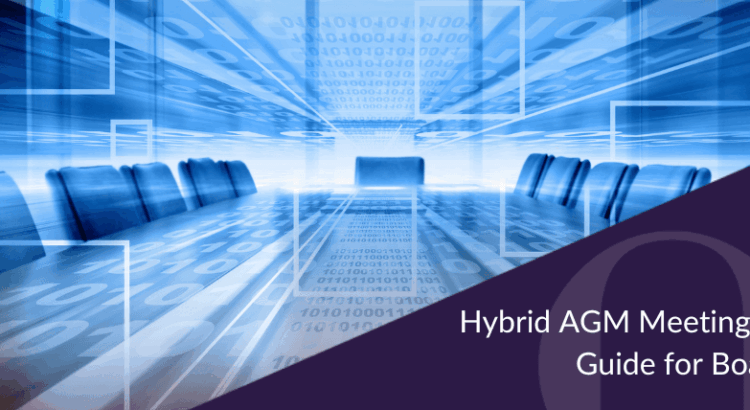|
|||||||||
|
|||||||||
|
|||||||||
|
|||||||||
|
|||||||||
|
|||||||||
|
|||||||||
|
|||||||||
|
|||||||||
|
|||||||||
|
|||||||||
|
|||||||||
|
|||||||||
|
|||||||||
|
|||||||||
|
|||||||||
|
|||||||||
|
|||||||||
|
|||||||||
|
|||||||||
|
Author: khushbuthakkar
Singapore Corporate Tax Filing – Is Your Business Ready for 30 November Deadline?
How Smarter HR & Payroll Drive Business Growth

How Smarter HR & Payroll Drive Business Growth
HR is no longer just the department that processes payslips and tracks annual leave. Today, it is a strategic driver of business growth helping leaders make better decisions, improving employee experience and ensuring compliance across borders.
Yet in Singapore and across Southeast Asia, many companies still depend on manual processes, disconnected HR and payroll systems, or a mix of local vendors. This slows down operations, creates compliance risks, and distracts HR from its real purpose: enabling the business to grow.
As Nie Ying, Regional Operations Director at BoardRoom Group, explains, “With outdated or disconnected systems, companies face limits in managing employee data digitally. Legacy platforms often operate as standalone databases that don’t talk to each other, making scaling and integration difficult.”
This is where BoardRoom steps in offering payroll solutions that combine expert outsourcing with smart technology like the IGNITE payroll system.
The HR + Payroll Challenge in Southeast Asia
Expanding across Southeast Asia is not just about finding customers, it is about managing a complex web of local compliance rules.
In Singapore, HR leaders must handle CPF contributions, annual IRAS submissions, and frequent regulatory updates. In Malaysia, there’s EPF, SOCSO, and income tax while in Hong Kong, there are MPF and Inland Revenue requirements.
Companies running separate HR and payroll systems often face:
- Manual data re-entry, which increases error risk
- Delays in payroll processing due to poor system integration
- Difficulty consolidating reports for decision-making
- Compliance gaps when operating across multiple jurisdictions
Nie Ying explains the root of these challenges, “When a company grows quickly or expands across regions, it faces difficulties managing employee data digitally. Legacy or disconnected systems often operate as standalone databases that don’t talk to each other, making scaling and integration difficult.”
She adds, “Older systems usually only cover basic modules like personnel, payroll and leave. Modern, cloud-based solutions provide integrated functions such as attendance, appraisal, claims and can support multiple companies and countries within the same platform.”
By addressing these limitations with an integrated payroll and HR system, businesses can reduce errors, improve compliance, and free HR to focus on strategic growth rather than firefighting operational issues.
Why Integrated Payroll & HR Systems Matter
An integrated HR payroll software environment is no longer a luxury, it is a necessity. Many legacy HRMS platforms do not sync well with payroll, leading to duplicate work, inconsistent records and delayed reporting. This slows down compliance checks and makes workforce planning harder.
By contrast, online payroll software with full HRMS integration can:
- Automate statutory calculations and reporting
- Provide real-time dashboards for management
- Reduce data entry errors and payroll disputes
- Give employees self-service access to payslips, leave balances, and claims
BoardRoom’s IGNITE payroll management system integrates HR and payroll functions into one secure platform. With five core modules such as Payroll, Employee Hub, Leave, Attendance, and Claims, it supports true multi-country payroll processing, ensuring full statutory compliance across 10 countries and regions in Asia: Singapore, Malaysia, Hong Kong, Macau, Taiwan, China, Indonesia, Vietnam, the Philippines, and Thailand. This helps businesses navigate the constantly evolving payroll compliance regulations in each market.
“Modern, cloud-based systems allow employees to check their payslips, submit claims and manage leave anytime. They also support multi-company and multi-country operations on a single platform. This reduces emails to HR and frees up the team to focus on more strategic work,” Nie Ying says.
How BoardRoom’s IGNITE Helps Companies Scale with Smarter HR
For companies in Singapore, BoardRoom offers two options:
- Full outsourcing — where BoardRoom’s payroll experts manage everything end-to-end
- Software-as-a-Service — using IGNITE as a cloud-based payroll software Singapore businesses can access it anywhere
Many fast-growing firms prefer outsourcing to a trusted payroll software provider.
As Nie Ying explains, “If clients just adopt the SaaS model, they need extra manpower to run payroll and manage the system. If they outsource to BoardRoom, we handle the processing, ensure compliance is in place, and guide clients through the system efficiently.”
Outsourcing also reduces the risk of disruption caused by staff turnover or leave.
“When HR staff are on leave, on long-term leave, or have left the company, clients don’t need to worry. Payroll continues smoothly without interruptions,” says Nie Ying.
When companies scale, the system itself must be able to grow with them.
Nie Ying highlights that “The system needs to scale horizontally and vertically, supporting multiple entities in the same database and even multi-country payroll. This allows companies to expand without constantly hiring extra staff to manage the complexity.”
Advice for HR Leaders Planning to Scale
Nie Ying shares guidance for HR leaders preparing for growth, “First, your agenda must be very clear and you must know your future growth plan. Second, find a system that can scale both horizontally and vertically. It should support multiple entities in the same database and, if expanding regionally, multi-country payroll. Finally, ensure the system has reasonable pricing and can grow with you as your headcount and operational complexity increase.”
Case Example: Scaling Across APAC
Nie Ying shares a Singapore-based success story, “After a few years, one client quickly expanded to India, Vietnam, and Indonesia. Over time, we supported them from 1 entity to 7 entities across the region. As their headcount grew, so did the services we provided, helping them scale efficiently while staying compliant.”
With BoardRoom’s IGNITE payroll management system, HR teams can:
- Access integrated payroll and HR modules including Payroll, Employee Hub, Leave, Attendance & Claims
- Enable true multi-country payroll processing across 10+ APAC countries
- Ensure automated statutory compliance with local legislation
- Focus on strategic initiatives such as talent development, employee engagement, and culture rather than administrative firefighting
This combination of smart online payroll software, integrated HRMS, and expert payroll services ensures that Singapore businesses can scale efficiently, reduce operational risk, and maintain consistent compliance across multiple markets.

The Strategic Value of Payroll Data
Beyond compliance and efficiency, integrated payroll systems generate valuable business intelligence. By analysing payroll data, companies can:
- Identify overtime trends and workforce cost spikes
- Plan headcount based on accurate cost forecasting
- Track the ROI of hiring decisions across regions
“HR is no longer just about administrative tasks,” Nie Ying explains. “Over time, it has evolved into a strategic partner that provides insights to help the business make informed decisions. Payroll data is a key part of that, it helps leaders understand workforce trends, costs and opportunities for growth.”
With accurate, real-time payroll data, companies can make strategic decisions faster, reduce unnecessary costs, and allocate resources more effectively. By integrating HR and payroll, platforms like BoardRoom’s IGNITE enable HR teams to move from administrative management to a more strategic, insight-driven role.
Conclusion: From Process to Growth Partner
In Singapore’s competitive business environment, HR leaders cannot afford to be bogged down by manual payroll tasks or outdated systems. The right payroll system Singapore businesses adopt should be more than a payslip generator, it should be a growth enabler.
With BoardRoom’s payroll outsourcing services and the IGNITE platform, HR teams can shift their focus from administrative firefighting to strategic impact. Smarter HR and payroll systems give you the freedom to grow confidently knowing that compliance, accuracy, and efficiency are always covered
As Nie Ying summarises the value in practice, “BoardRoom grew alongside the client, expanding services as their headcount and operations increased across the region.”
Want to know more? Contact us to know how BoardRoom’s payroll services can help your business scale smarter.
Contact BoardRoom for more information:
How can your business benefit from the Johor-Singapore Special Economic Zone?

How can your business benefit from the Johor-Singapore Special Economic Zone?
The Johor-Singapore Special Economic Zone (JS-SEZ) is a landmark cross-border initiative designed to deepen economic integration and accelerate growth across Southeast Asia. The JS-SEZ offers businesses structural advantages, including tax incentives, simplified cross-border operations, access to skilled talent and targeted government support.
More than a geographic corridor, the Johor-Singapore Special Economic Zone is a strategic move to attract high-value industries, such as advanced manufacturing, logistics and technology.
Eunice Hooi, Managing Director Asia, Accounting and Tax at BoardRoom Group, comments, “Historically, businesses crossing the Malaysia-Singapore border faced fragmented procedures—duplicated customs declarations, different licensing processes, and varied regulatory compliance requirements. By harmonising these processes, the SEZ s aims to streamline customs, reduce regulatory delays and duplication, minimize administrative burdens and lower operational costs across both jurisdictions”.
Eunice further adds “In essence, the JS SEZ transforms a traditionally complex dual-jurisdiction operation into a streamlined, cost-efficient supply chain model, and enhances the go-to-market execution”. With early momentum building, businesses that act now may gain a competitive edge.
What is the Johor-Singapore Special Economic Zone?
The meaning of a special economic zone lies in its designation as an area with tailored regulatory and economic policies, aimed at attracting investment, enhancing trade and fostering industrial growth. To attract businesses to the zone, governments usually offer a range of incentives, such as tax breaks, simplified customs procedures, and infrastructure support.
The Johor-Singapore Special Economic Zone is unique in that it takes a cross-border approach. Jointly developed by the governments of Malaysia and Singapore, the JS-SEZ spans Johor (Malaysia) and Singapore. Its purpose is to facilitate integrated business activity across both jurisdictions while reinforcing Southeast Asia as a hub for innovation and regional commerce.
“The JS-SEZ addresses a critical barrier to cross-border expansion: regulatory fragmentation. The JS-SEZ is designed to harmonise regulatory frameworks – from customs and licensing to immigration – and eliminate duplication,” says Eunice. “By harmonising these systems, the SEZ provides businesses with predictable regulatory pathways, and makes it easier for businesses to operate across both countries”.
The JS-SEZ includes a joint facilitation centre, acting as a one-stop platform for businesses to process permits, licenses and applications that previously spanned separate regulatory systems. Importantly, these benefits are specific to operations based in Johor and are supported by the Johor state government.
Targeted Sectors and Their Benefits
The Johor-Singapore Special Economic Zone targets 11 high-growth sectors chosen for their strategic value to regional development.
Eunice shares her insights, “By targeting these sectors, the JS-SEZ aligns regional economic priorities with business incentives, creating an environment where high-value industries can scale operations, invest in technology, and tap into a regional talent pool/
The sectors and their associated benefits are presented below:
| Sector | Key Benefits |
| Advanced Manufacturing | Reduced customs barriers, access to integrated logistics, and tax incentives. |
| Logistics | Streamlined customs, improved connectivity, and digital logistics infrastructure |
| Food Security | Support for agri-tech and food processing industries, with investment incentives. |
| Tourism | Incentives for integrated tourism projects including eco and medical tourism. |
| Energy | Focus on renewable energy and cross-border energy collaboration and infrastructure. |
| Digital Economy | Preferential tax rates, support for AI, data centres, and tech innovation. |
| Green Economy | Incentives for sustainable businesses and green technology initiatives. |
| Financial Services | Expansion of banking, fintech, and capital markets to support regional businesses. |
| Business Services | Growth of corporate, legal, and professional services with regulatory support. |
| Education | Development of talent pipelines through institutions and upskilling programmes. |
| Health | Expansion of healthcare services and medical tourism, supported by tax incentives. |
Eunice shares further insights, “For instance, a tech company investing in an AI campus can benefit not only from lower taxes but also from simplified cross-border employment visas, access to data centres in Johor, and collaborative R&D opportunities with Singapore-based partners.” These sector-specific incentives are designed to support long-term investment and cross-border scalability. They also highlight the JS-SEZ’s broader aim of functioning as a regional launchpad for high-value industries.

What Makes the SEZ a Game-Changer for Businesses?
For companies eyeing regional expansion, the Johor-Singapore Special Economic Zone offers more than incentives – it provides a launchpad for long-term scalability and cross-border integration. With cost efficiency, regulatory clarity and access to key markets, the JS-SEZ helps businesses overcome traditional growth barriers. These advantages are especially valuable for capital-intensive or fast-scaling sectors.
Key tax provisions – such as a 5% corporate tax rate for up to 15 years and Investment Tax Allowances of up to 100% – are not just financial sweeteners. They create room for reinvestment, innovation and operational resilience.
As Eunice explains, “The JS- SEZ is structured to support business growth — it’s not merely about favourable tax rates, but it’s creating an operational ecosystem that allows businesses to operate with clarity and administrative ease. In practical terms, this combination of tax incentives and administrative efficiency would undoubtedly increase the speed-to-market for goods and services, while lowering the costs and risks operating across these two jurisdictions.”.
Crucially, the JS-SEZ facilitates faster go-to-market execution. Joint facilitation centres and harmonised customs processes reduce delays, while digital systems simplify the movement of goods, talent and capital across the Causeway.
Companies also gain a broader talent base and benefit from improving frameworks for workforce mobility. Combined with strong government support, including infrastructure investment and skills funding, the JS-SEZ helps businesses scale operations confidently on both sides of the border.
Momentum is already visible. Across multiple special economic zone areas, early movers are establishing data centres, AI campuses, EV parks, and healthcare hubs. They are using the JS-SEZ to strengthen regional operations and future-proof their growth. The Singapore-Johor Special Economic Zone is not a future concept. It’s a working model of regional business enablement.
Is Your Business Positioned to Succeed in the JS-SEZ?
While the Johor-Singapore Special Economic Zone offers strong advantages, it won’t suit every organisation. Businesses that succeed in special economic zone areas typically meet certain strategic and operational criteria.
If your business checks several of the following boxes, you may be well-placed to benefit from the SEZ:
- You operate in one of the 11 priority sectors.
- You’re expanding in Southeast Asia or looking for a cost-effective regional base.
- You want to reduce operational overheads and streamline cross-border processes.
- You rely on access to skilled talent from both Malaysia and Singapore.
- You’re prepared to manage dual-jurisdiction compliance or plan to engage expert advisors.
C-suite teams should also consider the following key questions:
- Are we structured to support activity across both Malaysia and Singapore?
- Can we meet minimum capital investment thresholds to qualify for incentives?
- Do we have the right partners to help us navigate cross-border regulatory requirements?
“There’s no one-size-fits-all compliance model in the JS-SEZ as the operational footprint, tax incentives, regulatory and capital investment requirements vary by sector,” says Eunice.
“Each setup must be structured carefully from the start. For instance, a logistics company may prioritise customs facilitation and transport infrastructure, while a fintech firm may focus on banking regulations and digital economy incentives” Eunice further adds. “Misalignment at the outset can result in missed tax benefits or regulatory delays. Careful structuring ensures that entity setup, licensing, and workforce planning are optimised for dual-jurisdiction compliance, risk management, and maximum operational efficiency”.
Timing is critical. Companies that enter early can take advantage of the most generous incentives and greater flexibility when choosing partners, land and infrastructure. As interest grows, competition will intensify and late entrants may face longer approval times, reduced access to funding programs and fewer strategic options.

How BoardRoom Can Help You Set Up in the Johor-Singapore SEZ
Expanding into the Johor-Singapore Special Economic Zone requires more than registering a business. It demands a coordinated, cross-border approach that aligns with incentive frameworks, regulatory requirements and long-term strategic goals. BoardRoom is well-placed to guide businesses through this process from start to scale.
BoardRoom can assist with incorporation in both Johor and Singapore, structuring entities to meet JS-SEZ-specific requirements while optimising tax exposure. Our team helps secure the right permits, licences and approvals through the joint facilitation centre and ensures compliance across both jurisdictions.
BoardRoom supports businesses in identifying and applying for available tax incentives, including the 5% special tax rate and investment allowances, while also advising on transfer pricing, tax residency and avoiding double taxation.
“Our role is to help businesses structure their operations so they can maximise available sector-specific incentives while remaining compliant. We will take into considerationthe minimum capital thresholds, as well as the flow of goods, services and personnel across the border,” explains Eunice. “We can also advise on the transfer pricing frameworks to ensure that the cross-border transactions between Johore and Singapore entities are compliant across the jurisdictions”.
With the , we provide ongoing governance support, covering statutory filings, financial reporting, payroll and employment pass guidance, helping businesses manage operational compliance on both sides of the Causeway. Beyond technical delivery, BoardRoom can act as a strategic partner: monitoring policy shifts, advising on sector-specific opportunities, and connecting clients with key government and business networks.
Whether you’re exploring the JS-SEZ or ready to launch, BoardRoom brings the cross-border insight and operational depth needed to help you succeed.
A Strategic Move Starts with the Right Partner
The Johor-Singapore Special Economic Zone presents a compelling opportunity for businesses seeking to expand in Southeast Asia. Tax incentives, simplified cross-border operations, and targeted sector support offer a strong foundation for growth.
But real success in the JS-SEZ depends on more than location. It requires strategic planning, regulatory foresight and the right partners to navigate a complex cross-border environment. Businesses that move early stand to gain the most from securing favourable incentives to establishing a strong operational footprint ahead of rising demand.
With the JS-SEZ Project Office now in place to facilitate cross-border investment, BoardRoom is ready to support your expansion every step of the way. The JS-SEZ Project Office, set up by the Ministry of Trade and Industry (MTI), Enterprise Singapore, and the Singapore Economic Development Board, complements Malaysia’s Invest Malaysia Facilitation Centre – Johor, which was launched in February to facilitate investments into the region.
At BoardRoom, we’re here to help you assess your JS-SEZ readiness and execute with confidence. From incorporation and tax structuring to ongoing compliance and regional strategy, our team is ready to support your expansion every step of the way.
Explore your potential in the Johor-Singapore Special Economic Zone with BoardRoom. Speak with our experts today to begin your journey into Southeast Asia’s most high-potential growth zone.
Contact BoardRoom for more information:
Related Business Insights
-

29 Sep 2025
How Smarter HR & Payroll Drive Business Growth
HR is no longer just the department that processes payslips and tracks annual leave. Today, it is a strategic drive …
READ MORE -

25 Sep 2025
How Company Tax Filing and Pre-Planning Can Be a Strategic Advantage
Discover how to move company tax filing from a compliance box-tick to a strategic advantage that reduces risk and u …
READ MORE -

12 Sep 2025
Hybrid AGM Meetings: A Strategic Guide for Board Members
BoardRoom experts share their insights on how hybrid AGM meetings have the power to enhance governance, compliance …
READ MORE
0% Tax Opportunity for Family Offices – Are You Ready?
0% Tax Opportunity for Family Offices – Are You Ready?
|
|||||||
|
|||||||
|
|||||||
|
|||||||
|
|||||||
|
|||||||
|
|||||||
|
|||||||
|
|||||||
|
|||||||
|
|||||||
|
|||||||
|
|||||||
|
|||||||
|
|||||||
|
|||||||
|
Hybrid AGM Meetings: A Strategic Guide for Board Members

Hybrid AGM Meetings: A Strategic Guide for Board Members
Once limited to physical venues, AGM meetings have evolved alongside advancements in governance and technology. The shift began during the COVID-19 pandemic and has since been reinforced by regulatory updates from Accounting and Corporate Regulatory Authority (ACRA) and the Singapore Exchange (SGX), which now provide greater flexibility in how meetings are conducted.
Today, hybrid AGMs, combining in-person and virtual participation, are becoming increasingly common, promoting accessibility, transparency, and broader shareholder engagement.
Nonetheless, physical AGMs continue to hold significance, especially for shareholders who prefer direct, in-person interaction. Charlyne Pak, Manager, Share Registry Services, BoardRoom Singapore, notes that hybrid formats support broader engagement without the loss of human touch. This guide provides advice for board members navigating hybrid AGM meetings to ensure compliance and shareholder accessibility.
What is a Hybrid AGM Meeting?
An AGM meeting (Annual General Meeting) is a vital event where shareholders review company performance, vote on key matters and engage with the board. Among the various types of shareholders’ meetings, AGMs are legally required and central to corporate transparency.
A hybrid AGM integrates in-person and virtual participation, allowing shareholders to attend, vote and ask questions from any location. This format supports greater inclusivity and flexibility, especially for overseas shareholders, individuals with accessibility needs, or shareholders with scheduling conflicts.
“Hybrid AGM allows more shareholders to participate meaningfully, regardless of their location,” says Charlyne. “It promotes inclusivity without compromising governance”.
Key features of a hybrid digital meeting include secure online voting, live Q&A, and access to documents and presentations. Proxy appointments can be made via physical forms and/or electronically, with systems in place to verify identity and ensure voting integrity.
While digital engagement is rising, physical AGMs remain important, as many shareholders still value in-person interaction. The hybrid digital meeting format offers the best of both worlds, making it a strategic choice for boards aiming to balance accessibility, compliance and shareholder trust built on transparency and inclusive participation.

Navigating Compliance and Regulatory Considerations
As hybrid AGM meetings become more prevalent, it is crucial to ensure that meeting formats adhere strictly to regulatory requirements. The legal framework for AGM meetings is set out in the Companies Act for private limited and non-listed public companies and Listing Rules for listed entities. These rules provide clear mandates for maintaining corporate transparency and safeguarding shareholder rights, regardless of whether a meeting is conducted in person or in a hybrid format.
Singapore’s Regulatory Landscape for AGM Meetings
Companies are required to provide shareholders with clear and timely AGM notices, detailing the meeting date, time, agenda, venue, and procedures for both physical and virtual participation. Instructions must also cover real-time electronic voting, how to access meeting documents, and how to submit questions in advance or during the meeting. These notices must be distributed within statutory timelines, made easily accessible, often via company websites or digital platforms.
For listed companies, the SGX Listing Rules and Practice Note 7.5 provide further guidance, emphasising fairness, transparency, and inclusivity. Shareholders should be given at least seven days after the meeting notice is published to submit written questions, and issuers are encouraged to respond promptly, ideally before proxy forms are lodged. Crucially, hybrid meeting arrangements must not disadvantage virtual attendees: they must be able to vote, raise questions, and receive real-time responses with the same ease as those attending in person.
“Advance submission of questions is especially helpful for those who are less comfortable speaking in public,” says Charlyne. “It enhances board accessibility and builds trust by ensuring everyone has a chance to be heard”.
Best Practices for Governance-Compliant Hybrid Digital Meetings
To support full compliance and uphold good governance, BoardRoom recommends the following best practices:
- Clearly outline how to access the physical venue and online platform.
- Provide detailed instructions for proxy submission, voting procedures and accessing documents.
- Ensure virtual and physical attendees can vote with equal rights and convenience.
- Use secure, auditable e-voting systems that support real-time voting.
- Deploy secure platforms with proven uptime and data protection standards.
- Include redundancy systems and real-time tech support to manage unexpected disruptions.
- Allow shareholders to submit questions live.
- Provide equal Q&A time for virtual participants, and moderate responses transparently.
- Provide options for both physical and electronic proxy submissions.
- Communicate proxy deadlines clearly and accurately.
“Companies must ensure that hybrid arrangements do not create inequalities in participation,” explains Charlyne. “Shareholders attending virtually must enjoy the same rights as those present physically. This includes voting, asking questions and receiving real-time responses from the board”.
Shareholder Engagement and Hybrid AGMs
Shareholder engagement is a cornerstone of effective corporate governance. Hybrid AGMs have become a tool to enhance this engagement. When done well, hybrid AGMs remove traditional access barriers and foster a more inclusive, transparent dialogue with shareholders.
Enhancing Participation with Digital Tools
Hybrid AGMs use integrated technologies that ensure both virtual and physical attendees can participate equally. These include:
- Secure electronic voting systems that are auditable, easy to use and enable real-time vote casting.
- Live Q&A sessions that allow shareholders to pose questions during the meeting, whether present physically or virtually.
- Live polling features that capture sentiment in real time accurately, reinforcing the value of shareholder input during key decisions.
Managing Concerns: Security, Privacy and Integrity
With the growing use of digital tools, boards must also address concerns around data security, fraud prevention and system reliability. A hybrid AGM introduces new potential risks, such as unauthorised access, data leaks or system failures. If not managed properly, these risks can undermine trust and regulatory compliance.
Digital security best practices include:
- user authentication protocols to verify shareholder and proxyholder identities before granting access to meeting platforms;
- end-to-end encryption of voting and participation data;
- redundant systems and real-time tech support, ensuring continuity even in the event of a technical issue.
“We work closely with our technology partners to deliver fully tested, secure platforms,” says Charlyne. “Our systems are designed to support the end-to-end meeting process, from pre-meeting communication to post-meeting reports, safely and seamlessly”.

Risk Management and Future Proofing AGMs
Running a hybrid AGM meeting means managing two formats concurrently, increasing the complexity around system reliability, data privacy and operational continuity. It is incumbent on boards to proactively address risks tied to technology, compliance and stakeholder trust.
“Hybrid AGMs require meticulous planning,” says Charlyne. “Platform security, user authentication and contingencies must all be in place to mitigate disruptions and reinforce trust”.
Ultimately, the conversation about hybrid AGMs is not about replacing physical meetings but enhancing them. Each format serves unique needs, and by integrating both, organisations can strengthen governance, expand access, and manage risk more effectively.
BoardRoom’s digital solutions support features like e-proxies, real-time online voting and self-registration tools, all backed by secure, PDPA-compliant platforms with end-to-end encryption. Real-time tech support and rigorous dry runs ensure resilience against system failures and cyber threats. Beyond compliance, BoardRoom offers a suite of integrated services managing everything from meeting documents distribution, proxy validation, user authentication, registration, voting to provision of post-meeting reports.
Charlyne adds that conducting full-scale dry runs to test the voting systems is key, as well as ensuring stakeholders are familiar with the platform. “It’s about making sure the experience is seamless and inclusive for every participant, regardless of format”, adds Charlyne.
Partnering with BoardRoom for Hybrid AGMs
Hybrid AGMs represent more than a technological upgrade – they can be a strategic step forward. As companies adapt to evolving expectations, hybrid AGMs allow boards to remain accessible, transparent and inclusive, without sacrificing the integrity of the AGM meeting.
BoardRoom’s hybrid AGM solutions are built to scale, fully compliant with Singapore’s legal framework and supported by trusted technology partners.
“At BoardRoom, we offer more than just technology — we deliver complete meeting experiences,” says Charlyne. “We support our clients through the entire lifecycle, from regulatory compliance, proxy handling to real-time voting and post-meeting reporting, ensuring every aspect of the meeting is seamless and secure”.
Get in touch today to learn how we can help you deliver a compliant, engaging and future-ready AGM.
Contact BoardRoom for more information:
Charlyne Pak
Manager, Share Registry Services, BoardRoom Singapore
Related Business Insights
-

29 Sep 2025
How Smarter HR & Payroll Drive Business Growth
HR is no longer just the department that processes payslips and tracks annual leave. Today, it is a strategic drive …
READ MORE -

25 Sep 2025
How Company Tax Filing and Pre-Planning Can Be a Strategic Advantage
Discover how to move company tax filing from a compliance box-tick to a strategic advantage that reduces risk and u …
READ MORE -

24 Sep 2025
How can your business benefit from the Johor-Singapore Special Economic Zone?
Act now to benefit from the Johor-Singapore Special Economic Zone, designed to simplify cross-border trade and attr …
READ MORE
Going Public? Avoid the Governance Pitfalls That Derail IPOs
Going Public? Avoid the Governance Pitfalls That Derail IPOs
|
|||||||
|
|||||||
|
|||||||
|
|||||||
|
|||||||
|
|||||||
|
|||||||
|
|||||||
|
|||||||
|
|||||||
|
|||||||
|
|||||||
|





